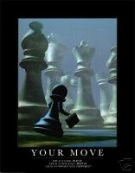Hi Uri,Uri Blass wrote:Hi Ed,
I do not see it as unlikely that there are big difference between programmers in speed and in search implementation.
I know that movei has slightly higher rating than Prodeo based on the ccrl list and I think that it may be possible to improve speed at least by a factor of 2 by better data structure.
Another problem of movei is expensive evaluation when part of it is probably counter productive when I did not investigate exactly which parts are counter productive.
If you are 20 times slower than the opponents you may have problems to get to the top but if you are 3 times slower than the opponents than things are different and even rybka beta slowed down by a factor of 3 is better than movei and prodeo(and I think that it is even correct for the 32 bit version of tybka) .
When we talk about late move reductions I do not believe about constant improvement from it and it is possible that it may be possible to earn even 200 elo from late move reduction if you find the right conditions to reduce.
I got the code of strelka that is very similiar to rybka beta.
It is clear that strelka is small and fast relative to movei.
It is also clear that strelka's evaluation is small and I simply doubt if this small evaluation is better than prodeo's evaluation or movei's evaluation
if you assume same speed.
Strelka is clearly faster than movei and it is almost 3 times faster in nodes per second based on my tests.
I guess the relative advantages of strelka relative to movei is basically in better data structure and some search implementations(search implementation can be other things than history reductions and it is is clearly easier to know what you do wrong then to do it right).
Uri
You have made some very interesting points.
I have not really heard much of this Stelka program, who programs that?
You say its similar to Rybka, in which ways?
Does it do anything new or is it an efficient implmentation of the known state of the art approaches?

